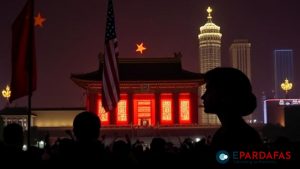
Apple Expands iPhone 16e Production to India Amid Efforts to Reduce Reliance on China
Apple has decided to manufacture its upcoming iPhone 16e in India, marking another step in its strategy to diversify production away from China. However, this shift comes with challenges, including potential U.S. tariffs on India if New Delhi continues its protectionist trade policies.
The decision to expand production outside China stems from previous supply chain disruptions, particularly during the COVID-19 pandemic. Apple, which designs its products but outsources manufacturing, has historically relied heavily on Chinese suppliers. However, geopolitical uncertainties and the need for a more resilient supply chain have led the company to seek alternative production hubs.
India has emerged as a key location in Apple’s diversification strategy. Foxconn, a major Apple supplier, operates an iPhone assembly plant in the country, and Apple has been steadily increasing its presence there, even opening its first official Indian retail stores in New Delhi and Mumbai in 2023. Reports indicate that the iPhone 16 series—including the budget-friendly 16e model—will be produced in India, with projections suggesting that by 2027, around 25% of iPhones will be manufactured in the country, up from the current 15%.
While producing budget models like the iPhone 16e in India is considered more feasible—given their reliance on components from previous generations—Apple still faces hurdles. The country grapples with electricity shortages and lower production yields, and a lack of skilled labor remains a concern. There have even been indications of Apple reconsidering some production in China due to these constraints.
Apple’s move also intersects with shifting U.S. trade policies. With a potential return of Donald Trump to the White House, uncertainty looms over future trade relations. While India has been making efforts to attract manufacturers—such as lowering tariffs on electronic components and lithium-ion battery equipment—its historically protectionist stance on imports could trigger tensions with Washington. If the U.S. imposes tariffs on Indian-made iPhones, Apple’s efforts to diversify production could face setbacks.
Another factor affecting Apple’s strategy is the strained relationship between India and China. Reports suggest that China has recently restricted the movement of its technicians to India, possibly to safeguard its technological expertise. While India is assembling iPhones, many key components are still produced in China, highlighting the challenge of establishing a fully independent supply chain.
As Apple deepens its manufacturing footprint in India, the next crucial step will be localizing the production of core electronic components. Until then, its reliance on China remains significant, even as it seeks to mitigate geopolitical and trade-related risks.













Comments